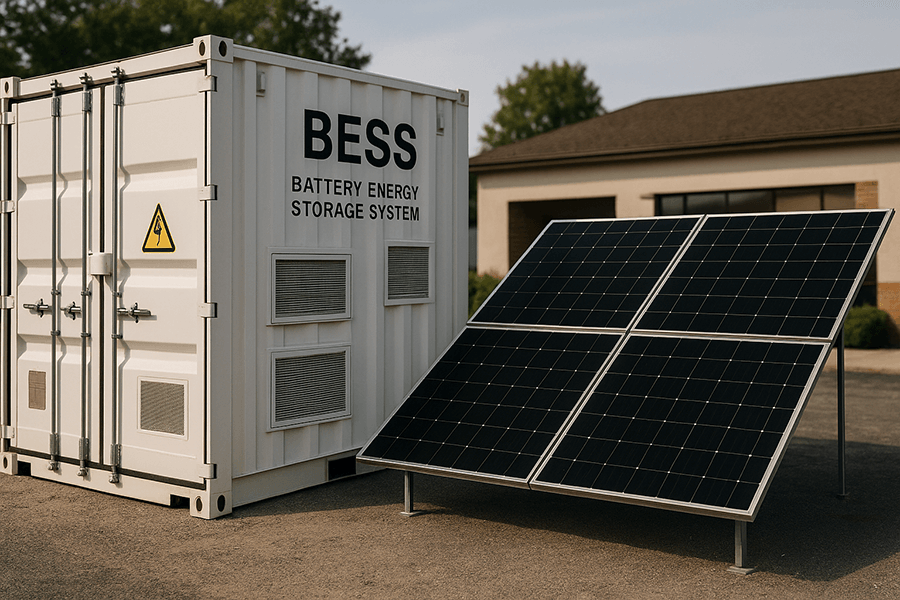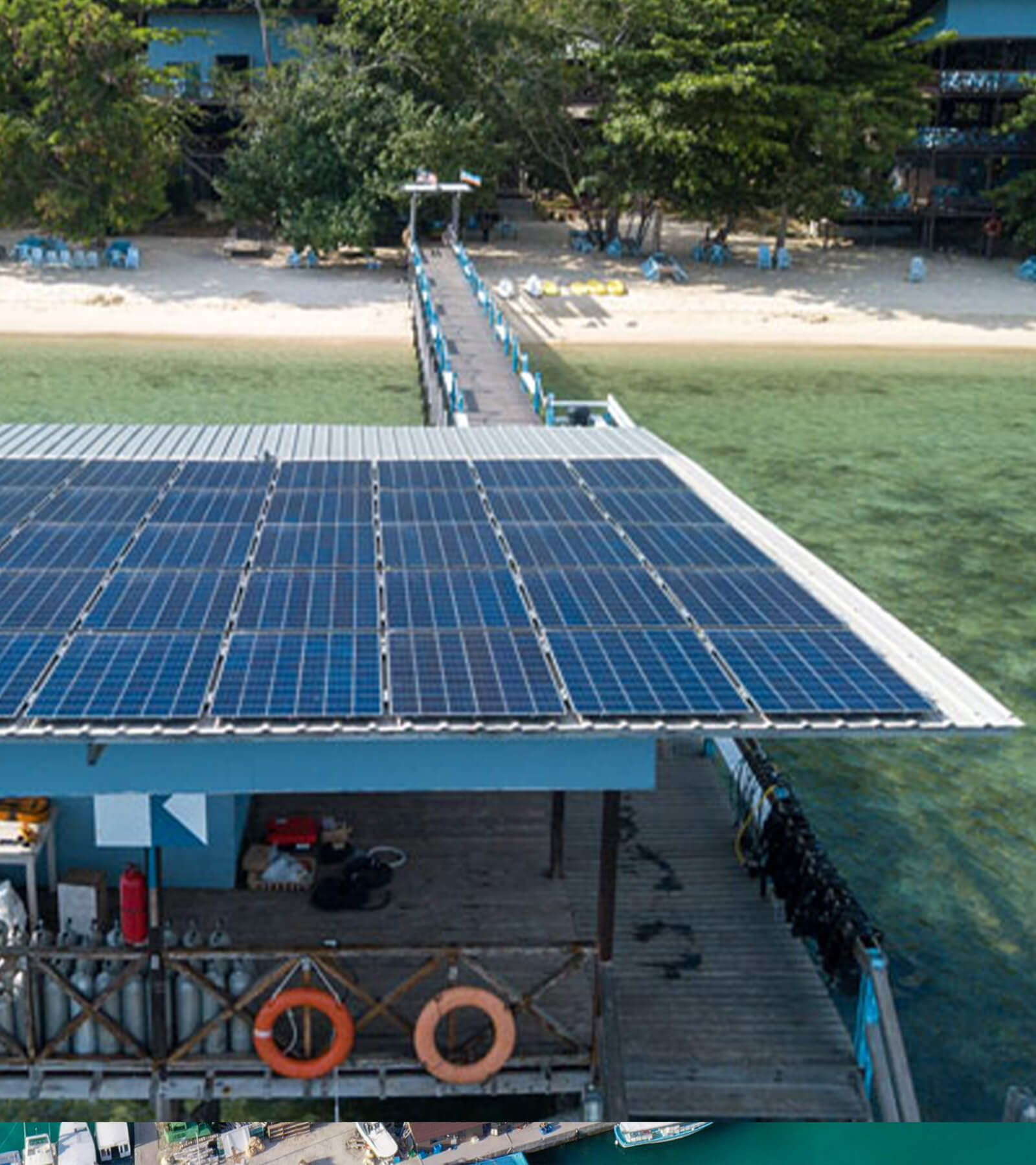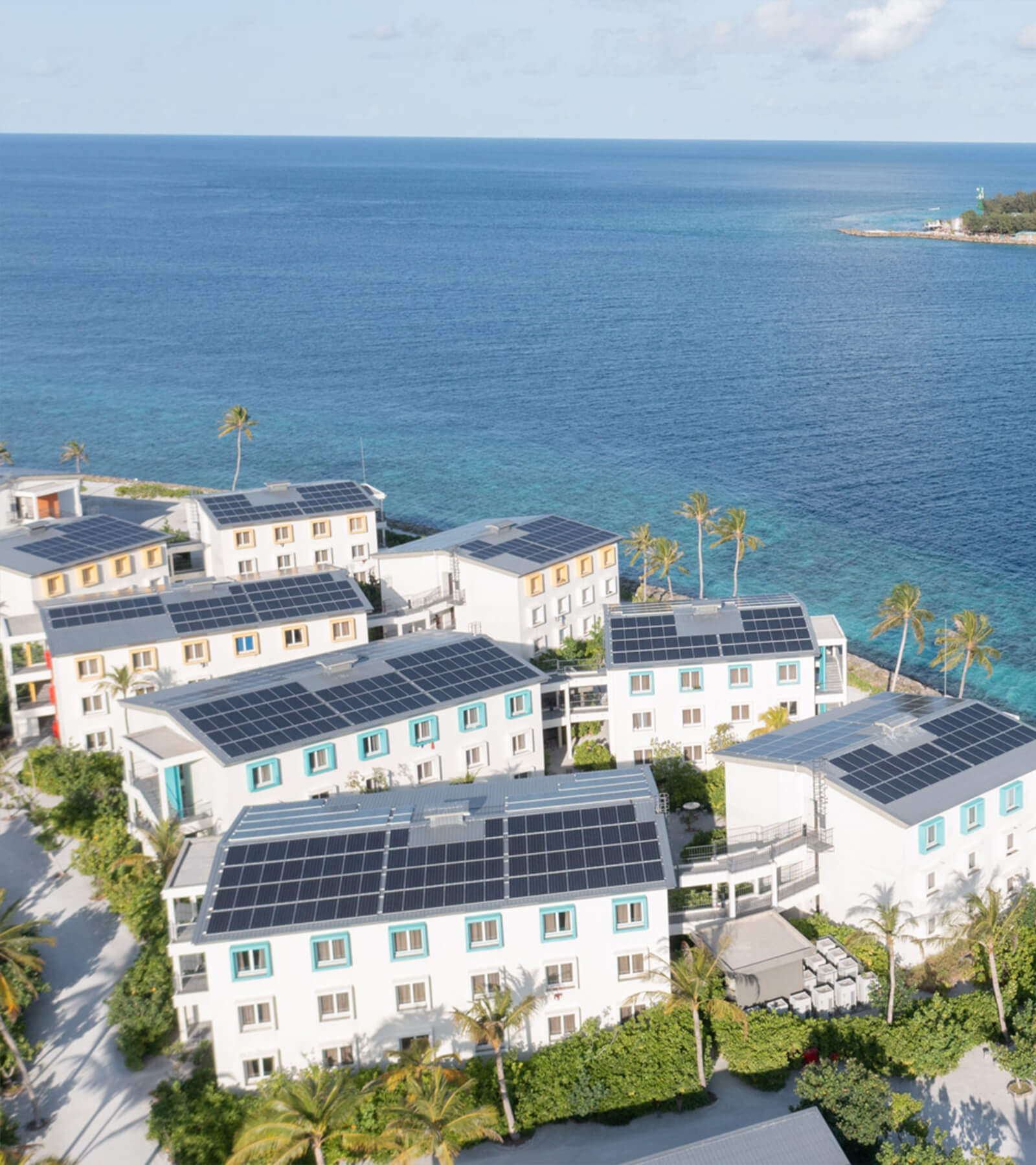Small-scale businesses often find themselves tangled in a web of energy woes: sticker-shock electricity bills, operation-crushing power outages, and the endless struggle to manage unpredictable costs. Enter the BESS container for small-scale businesses—a compact powerhouse that’s more than just a battery on wheels. This analysis breaks down the nitty-gritty: upfront costs (yes, it’s an investment, but hear us out), sweet benefits like slashing peak-hour bills, dodging outage losses, and pocketing rewards from demand-response programs. We’ll walk through real success stories—from a California green grocer saving $1,000/month to an Oregon winery nailing a 4-year payback—and dish out tips to tell if a BESS container is your business’s energy soulmate. Spoiler: It’s not magic, but it’s pretty close.

Introduction
In the wild west of the energy world, small – scale businesses are often like lone settlers, facing a barrage of energy – related challenges. The good news? There’s a potential sheriff in town, and it comes in the form of a Battery Energy Storage System (BESS) container. But is it really the silver – bullet solution it’s cracked up to be, or just another energy – related mirage? Let’s dig in!
Energy – Related Pain Points of Small – Scale Businesses
High Electricity Bills
Small – scale businesses are no strangers to those jaw – dropping electricity bills at the end of the month. It’s like getting hit with a surprise tax that just keeps growing. According to the U.S. Energy Information Administration (EIA), commercial electricity prices have been steadily increasing over the years, with significant regional variations. In some areas, peak – time electricity rates can be up to three times higher than off – peak rates. For example, in certain metropolitan areas, the average cost per kilowatt – hour (kWh) during peak hours can reach (0.30, while off – peak it might be around )0.10. Whether it’s a bustling coffee shop running multiple espresso machines or a small manufacturing unit with power – hungry equipment, these high rates can quickly eat into profit margins. A study by the Small Business Administration (SBA) found that energy costs account for an average of 6% of a small – scale business’s operating expenses, and for some energy – intensive industries, this figure can be as high as 15%. [EIA: https://www.eia.gov/electricity/data.php, SBA: https://www.sba.gov/]
Power Outages Affecting Operations
A power outage for a small – scale business is like a sudden sandstorm in the desert, disrupting everything. The frequency and duration of power outages vary by region, but they can have a significant impact on businesses. The Institute of Electrical and Electronics Engineers (IEEE) reports that the average cost of power outages for small – scale businesses in the United States is around $1,400 per hour. For a bakery, a power cut can mean a batch of half – baked goods ruined, not to mention the loss of refrigeration for perishable ingredients. Retail stores may have to close their doors temporarily, losing out on potential sales. These outages not only lead to immediate financial losses but can also damage customer relationships if services are frequently interrupted. A survey by the U.S. Chamber of Commerce found that 70% of small – scale businesses that experience a major power outage for more than a few hours go out of business within a year. [IEEE: https://www.ieee.org/, U.S. Chamber of Commerce: https://www.uschamber.com/]
Difficulty in Managing Energy Costs
Managing energy costs in the complex energy market is like trying to navigate a maze blindfolded. Energy tariffs are constantly changing, and understanding the best time to use energy, or how to optimize consumption, is a herculean task for small – scale business owners who are already juggling a million other things. There’s no easy way to predict future energy prices, and this uncertainty makes it tough to budget effectively. The International Energy Agency (IEA) states that factors such as changes in global energy supply and demand, geopolitical events, and government policies can all cause significant fluctuations in energy prices. In addition, the increasing complexity of energy – related regulations and incentives further complicates the situation for small – scale businesses. [IEA: https://www.iea.org/]
Upfront Costs of Installing a BESS Container
Purchase Price of the Container
The BESS container itself doesn’t come cheap. It’s like buying a small, high – tech treasure chest filled with batteries. The price can vary significantly depending on the capacity and quality. A basic, small – capacity BESS container with a capacity of around 100 kWh might start at around (50,000, but for businesses with higher energy demands, a 500 kWh BESS container could cost upwards of )200,000. For example, Cummins offers preconfigured BESS units with capacities ranging from 211 to 2280 kWh, and the price varies accordingly. The cost is also influenced by the type of battery technology used, with lithium – ion phosphate (LFP) batteries, known for their longer cycle life and higher safety, generally commanding a higher price. [Cummins: https://www.cummins.com/generators/battery-energy-storage-systems/product-overview]
Installation Fees
Installing a BESS container is no walk in the park. It’s not like hanging a picture on the wall. You need professionals to handle the electrical connections, ensure proper grounding, and make sure everything is up to code. Installation fees can range from (10,000 to )30,000, depending on the complexity of the installation and the location of the business. A study by the National Renewable Energy Laboratory (NREL) found that in remote areas or old buildings with complex electrical systems, the installation costs could be on the higher side due to the need for additional infrastructure upgrades. If the business requires a new electrical panel to handle the additional load from the BESS container, this could add another (5,000 – )10,000 to the installation cost. [NREL: https://www.nrel.gov/]
Additional Equipment Needed
In addition to the container and installation, there may be other equipment required. You might need to invest in a power conversion system to ensure the stored energy can be used efficiently by your business’s electrical equipment. This could add another (10,000 – )20,000 to the overall cost. There could be costs associated with integrating the BESS container with your existing energy management system, or even upgrading your electrical panel to handle the additional load. For example, if your business has an older energy management system that is not compatible with the BESS container, you may need to invest in a new system, which could cost between (5,000 – )15,000. The table below summarizes the typical upfront costs:
| Cost Component | Estimated Cost Range |
|---|---|
| BESS Container Purchase Price | 200,000+ |
| Installation Fees | 30,000 |
| Power Conversion System | 20,000 |
| Energy Management System Upgrade (if needed) | 15,000 |
Potential Benefits of BESS Containers
Reduced Electricity Bills through Peak – Shaving
One of the main perks of a BESS container is peak – shaving. It’s like having a secret energy stash that you can dip into during peak – rate hours. By charging the BESS container during off – peak hours when electricity is cheaper and using that stored energy when rates are high, small – scale businesses can significantly reduce their electricity bills. A case study by the Electric Power Research Institute (EPRI) showed that a small – scale manufacturing business was able to cut its monthly electricity bill by 25% after implementing peak – shaving with a BESS container. If a business typically spends (10,000 a month on electricity, a 25% reduction would result in savings of )2,500 per month. Over a year, that’s a tidy sum of $30,000. The table below shows the potential savings for different levels of peak – shaving effectiveness:
| Peak – Shaving Effectiveness |
Monthly Savings
|
Annual Savings
|
|---|---|---|
| 20% | $2,000 | $24,000 |
| 25% | $2,500 | $30,000 |
| 30% | $3,000 | $36,000 |
Savings from Avoiding Losses during Power Outages
With a BESS container, power outages don’t have to be as catastrophic. The stored energy can keep essential equipment running, minimizing losses. A study by the Lawrence Berkeley National Laboratory (LBNL) found that a small – scale restaurant could reduce its losses during power outages by 50% with a BESS container. Let’s say a small restaurant loses an average of (500 in revenue per power outage due to spoiled food and lost customers. If they experience 10 outages a year, that’s )5,000 in losses. But with a BESS container, they might be able to cut that loss in half, saving $2,500 per year. And that’s not even considering the long – term benefits of maintaining a good reputation with customers by avoiding service disruptions.
Possible Revenue from Participating in Demand – Response Programs
Many energy providers offer demand – response programs, and small – scale businesses with BESS containers can get in on the action. It’s like getting paid to be a good energy citizen. In these programs, businesses agree to reduce their energy consumption or supply stored energy back to the grid during peak demand periods. In return, they receive financial incentives. A report by the Smart Electric Power Alliance (SEPA) found that a small – scale business could potentially earn an extra (5,000 – )10,000 per year by participating in these programs, depending on the size of their BESS container and the demand – response rates in their area.
Case Studies of Small – Scale Businesses Using BESS Containers
The Green Grocer’s Success Story
A small, family – owned green grocer in California installed a BESS container last year. Before the installation, their monthly electricity bill was averaging around (3,000. By implementing peak – shaving strategies with their BESS, they’ve managed to bring that bill down to )2,000 per month. During a heatwave that caused multiple power outages in the area, their BESS kept their refrigeration units running, saving them from losing thousands of dollars’ worth of fresh produce. They also participated in a local demand – response program and earned an additional $3,000 over the course of the year.
The Boutique Winery’s Transformation
A boutique winery in Oregon faced significant challenges with power outages affecting their wine – making process. After installing a BESS container, they not only avoided losses during outages but also saw a reduction in their electricity bills. Their annual electricity cost dropped from (40,000 to )30,000. They also used the BESS to optimize their energy usage during the high – energy – demand grape – crushing season, ensuring a more stable and efficient operation.
Determining if a BESS Container is a Cost – Effective Investment
Analyze Energy Usage Patterns
The first step for small – scale businesses is to analyze their energy usage patterns. It’s like studying a map before going on a long journey. Look at when your business uses the most energy. If you have a consistent pattern of high energy consumption during peak – rate hours, a BESS container for peak – shaving could be a great fit. Use energy monitoring tools or consult with an energy expert to get a clear picture of your usage.
Consider the Payback Period
Calculate the payback period, which is how long it will take for the savings from the BESS container to cover the upfront costs. A general rule of thumb is that if the payback period is less than 5 – 7 years, it’s often considered a good investment. However, this can vary depending on factors like energy prices in your area, incentives available, and the lifespan of the BESS container.
Explore Incentives and Subsidies
Many governments and energy providers offer incentives and subsidies for businesses that install energy – storage systems. It’s like finding hidden treasure. These could include tax credits, grants, or rebates. Check with your local government agencies and energy providers to see what’s available. In some cases, these incentives can significantly reduce the upfront costs and shorten the payback period.
Maxbo Solar: Your BESS Container Partner
Hey there! I’m from Maxbo Solar, and we’re like the superheroes of the solar and energy – storage world. At Maxbo Solar (www.maxbo – solar.com), we’ve been helping small – scale businesses like yours navigate the energy maze for years. We understand the unique challenges you face, and our BESS containers are top – notch. Our team of experts can help you analyze your energy needs, find the perfect BESS container for your business, and even assist with installation and maintenance. We offer competitive pricing, and our BESS containers come with a solid warranty. With Maxbo Solar, you’re not just getting a product; you’re getting a partner in your energy – saving journey. So, why not give us a shout and see how we can help you transform your business’s energy game?












